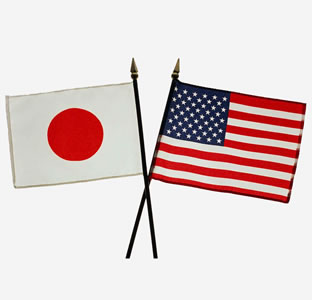
Meeting with Japan’s Abe Is First Test of Trump Diplomacy
Japan’s Prime Minister, Shinzo Abe, is flying to New York for the first meeting of a foreign head-of-government with President-Elect Trump.
Japan is a long-time subject of Trump’s foreign policy thinking, going back to the 1980s. In 1987, Trump placed a pull-page ad in the New York Times that started off by saying “For decades, Japan and other nations have been taking advantage of the United States.”
On the other hand, if Abe and Trump can build a relationship and come to agreement on the direction between the U.S. and Japan, the prospects for further cooperation is possible. This is high-stakes diplomacy at the highest level – played without a net.
ASP Adjunct Fellows Josh Walker and Hidetoshi Azuma write about this in a November 15 article in the National Interest saying “Japan Is Ready for a Trump Presidency.” They note with optimism the potential for personal chemistry between Trump and Abe, saying:
The two leaders’ enthusiasm for dialogue bodes well for the future of the bilateral alliance, with prospects for reviving personal rapport that have not been seen since George W. Bush and Junichiro Koizumi in the early 2000s.
Indeed, personal rapport between U.S. and Japanese leaders is nowadays a forgotten element in an alliance that has remained the cornerstone of regional peace and stability. From the anticommunist solidarity of Eisenhower and Kishi in the 1950s to the halcyon days of the Bush-Koizumi era, personal bonds played a crucial role in charting what was once an adversarial relationship toward an alliance with global significance. In particular, apart from sharing their passion for Elvis Presley at Graceland, Bush and Koizumi successfully expanded the scope of the bilateral alliance beyond Northeast Asia, culminating in the Japanese Self-Defense Force’s participation in the U.S.-led war on terror in the Middle East.
But there are potential speed bumps that could slow progress between the two leaders.
First, and perhaps the biggest policy difference between most Prime Minister Abe and President-Elect Trump, is their stance on the Trans-Pacific Partnership (TPP). Abe has taken a political chance in pushing the TPP in the face of a skeptical public. On Thursday November 10, just two days after the U.S. election, the Japanese Diet voted to pass the TPP. ASP has argued that the TPP is an instrument for peace in Asia and deserves support, but as a candidate, Trump expressed deep skepticism of the agreement. It would be very surprising if Abe and Trump could come to agreement on this issue.
Possibly the most consequential topic of discussion between the two leaders will be on the status of the alliance. There are around 50,000 American troops stationed in Japan, and major facilities to support Air, Sea, and Land operations across Asia. Trump has called for allies to pay more in exchange for American support. Ironically, this could be supported by Abe, write Walker and Azuma:
Abe reportedly expressed his intention to utilize Trump’s potential demand for Japan’s increased share of defense burden as a pretext for boosting the country’s independence from U.S. security guarantees. In Japan’s consensus-based society, change is hard to come by without external pressure, and no one knows this cultural rigidity more than the prime minister himself. Indeed, apart from securing an appointment with Trump, Abe immediately demonstrated his willingness for Japan’s greater regional role by having the Diet pass TPP ahead of U.S. ratification. In short, Abe is ready to forge personal rapport with Trump and negotiate a deal to upgrade the alliance.
Beyond trade and the military alliance, other topics of discussion and debate between the two leaders could include the rise of China, options for dealing with Putin’s Russia, the importance to Japan of the Paris climate deal (which Japan ratified on November 8), and how to react to aggression and nuclear blackmail from North Korea.
This meeting will be important for the future of America’s role in the Pacific. The consequences of this meeting will echo throughout the Trump presidency. It bears watching.





